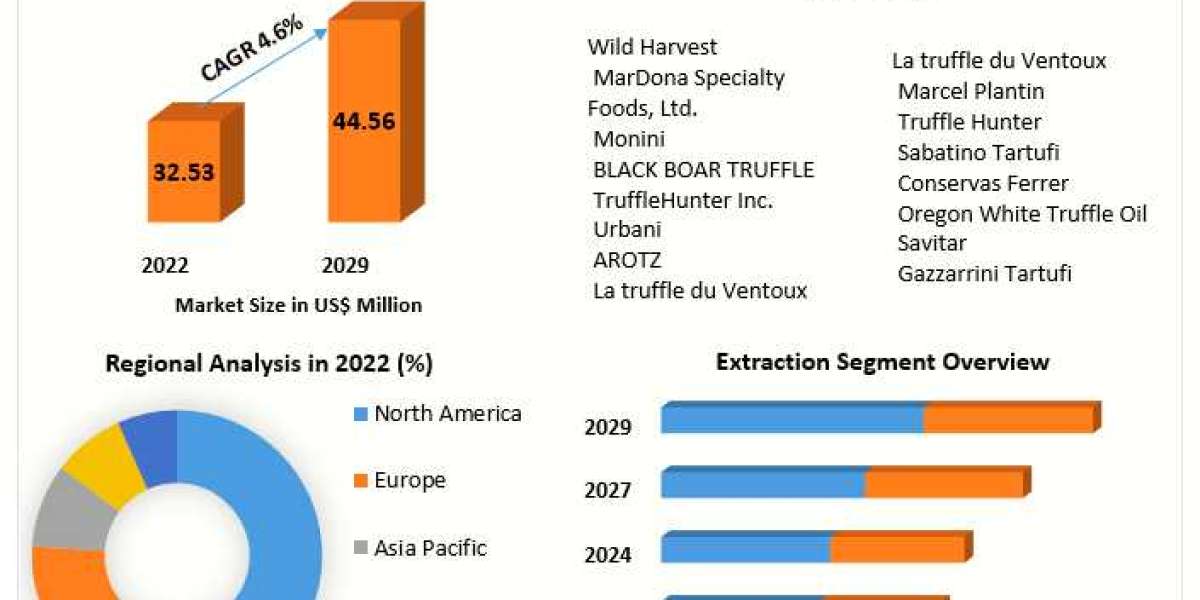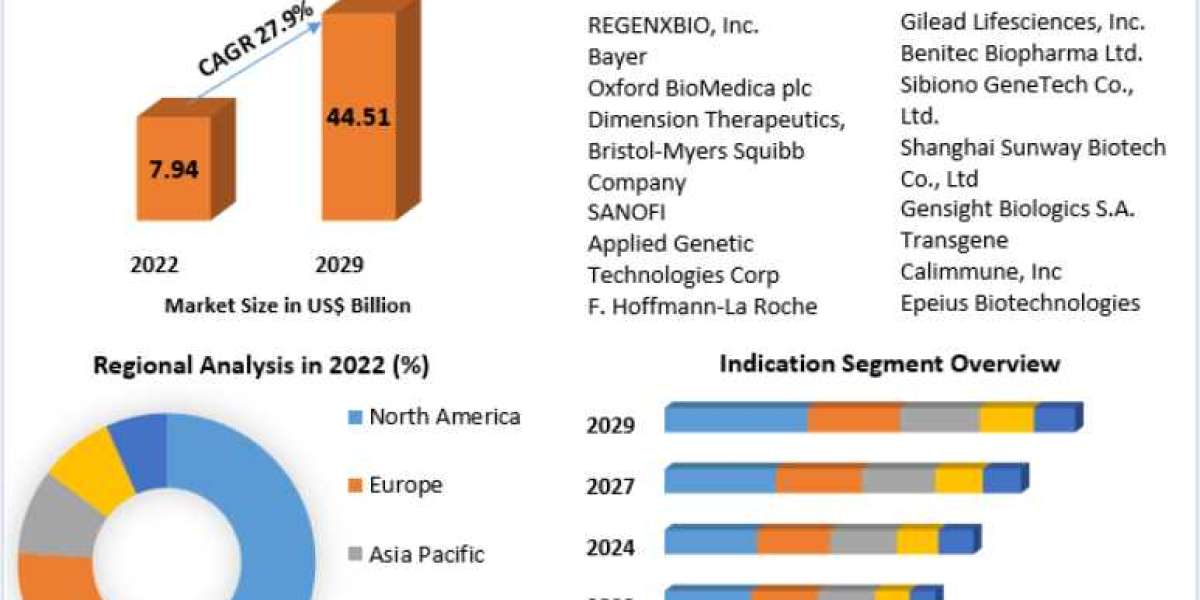What is Organic Food Certification and Standards Market?
The organic food certification and standards market involves certification bodies, regulatory agencies, and industry organizations responsible for establishing and maintaining standards for organic food production, processing, labeling, and certification.
Organic certification ensures that food products meet specific criteria related to organic farming practices, environmental sustainability, animal welfare, and the absence of synthetic pesticides, fertilizers, hormones, and genetically modified organisms (GMOs).
The market serves organic food producers, farmers, processors, distributors, retailers, and consumers seeking assurance of organic authenticity, quality, and compliance with organic standards.
Organic food certification and standards play a crucial role in promoting transparency, consumer trust, and market integrity in the organic food industry.
Market Growth and Demand
The organic food certification and standards market has experienced robust growth driven by increasing consumer demand for organic food products, growing awareness of health and environmental concerns, and expanding organic agriculture globally.
Factors such as rising disposable incomes, changing dietary preferences, and concerns about food safety and sustainability contribute to the demand for certified organic foods.
Government support for organic agriculture, implementation of organic regulations, and consumer education initiatives further fuel market growth by creating a conducive environment for organic food production and consumption.
Technological advancements in certification processes, traceability systems, and digital platforms facilitate the efficient management and verification of organic certification and compliance.
Market Revenue and Size
The global organic food certification and standards market generate revenue from certification fees, inspection services, training programs, consulting services, and related support services provided to organic food producers and stakeholders.
Market revenue is influenced by factors such as the volume and value of certified organic food sales, the number of certified organic operations, regulatory compliance requirements, and market penetration of organic certification programs.
The market size is projected to continue growing as consumer demand for organic products increases, regulatory frameworks for organic certification expand, and new markets for organic food emerge globally.
With the proliferation of organic certification schemes, standards harmonization efforts, and international trade in organic products, the organic food certification and standards market is expected to witness sustained growth and evolution.
Get more information: https://www.econmarketresearch.com/industry-report/organic-food-certification-and-standards-market/
Trends in Organic Food Certification and Standards
Harmonization of Standards: Efforts to harmonize organic certification standards and regulations at the national, regional, and international levels aim to facilitate trade, ensure consistency, and improve market access for organic producers.
Blockchain Technology: Adoption of blockchain-based traceability systems enables transparent and immutable record-keeping of organic certification data, supply chain transactions, and product origins, enhancing trust and transparency in the organic food supply chain.
Digital Certification Platforms: Online platforms and digital tools streamline the organic certification process, facilitate electronic documentation, and enable remote inspections, reducing paperwork, administrative burdens, and certification costs.
Regenerative Organic Certification: Growing interest in regenerative agriculture practices, soil health, and carbon sequestration drives the development of regenerative organic certification standards, emphasizing holistic ecosystem management, biodiversity, and climate resilience.
Application Product Insight
Third-Party Certification Bodies: Independent certification bodies accredited by regulatory agencies or certification organizations conduct audits, inspections, and certification assessments of organic food producers and processors to verify compliance with organic standards.
National Organic Programs (NOPs): Government agencies establish and enforce organic regulations, certification requirements, and labeling standards for organic food production and marketing within their jurisdictions, such as the USDA National Organic Program in the United States.
Private Organic Certification Standards: Private organizations, industry associations, and certification agencies develop their own organic certification standards and labels, which may include additional criteria or requirements beyond minimum regulatory standards.
Global Organic Certification Programs: International certification programs and standards, such as the International Federation of Organic Agriculture Movements (IFOAM) Organic Guarantee System, provide a framework for global organic certification and facilitate trade in organic products across borders.
Market Key Players
Ecocert Group: A leading organic certification body offering certification services for organic farming, food processing, cosmetics, textiles, and fair trade products worldwide.
Control Union Certifications: Provides organic certification services, inspection, and auditing services for organic agriculture, food processing, and sustainable supply chains across multiple sectors.
Soil Association Certification Ltd.: Offers organic certification services, advisory support, and market access solutions for organic farmers, food businesses, and consumer product manufacturers in the UK and internationally.
Organic Crop Improvement Association (OCIA) International: A global organic certification agency providing certification services, training, and technical assistance to organic farmers and producers in over 50 countries.
Regional Analysis
North America: Dominates the organic food certification and standards market with a well-established organic agriculture sector, strong consumer demand for organic products, and comprehensive organic certification programs such as the USDA National Organic Program.
Europe: Significant market presence due to stringent organic regulations, high consumer awareness of organic products, and a large market for certified organic foods in countries like Germany, France, and the United Kingdom.
Asia Pacific: Emerging as a growth market for organic certification and standards, driven by increasing consumer demand for organic foods, government support for organic agriculture, and rising adoption of organic certification programs in countries like China, India, and Australia.
Rest of the World: Growing interest in organic certification and standards in regions such as Latin America, Africa, and the Middle East, fueled by expanding organic agriculture, export opportunities, and consumer demand for organic products in domestic and international markets.
and automotive products.
.
OTHER REPORTS:
Smart Insulin Pens Market Rate
Portable Medical Devices Market Forecast
Mycoplasma Testing Market Industry
Medical Device Validation Verification Market Size
Medical Device Coating Market Share
Infectious Disease Point-of-care (POC) Diagnostics Market Growth
Bicycle Saddles Market Revenue
Acoustic Vehicle Alerting System Market Forecast
Data Center RFID Market Industry
Cloud Data Warehouse Market Size
Shared Services Center Market Share
Cochlear Implant Market Revenue
Advanced Therapy Medicinal Products CDMO Market Forecast
Applied AI in Agriculture Market Industry
Medical Waste Management Market Share
Food and Environment Manual Testing Market Analysis
Medical Device Outsourcing Market Revenue
Gaming Accessories Market Forecast
Co-Working Space Market Industry
Telecom Power Systems Market Size
Mobile Phone Insurance Market Share
Air Traffic Control Equipment Market Growth
Live Commerce Platforms Market Analysis
Higher Education Market Forecast



